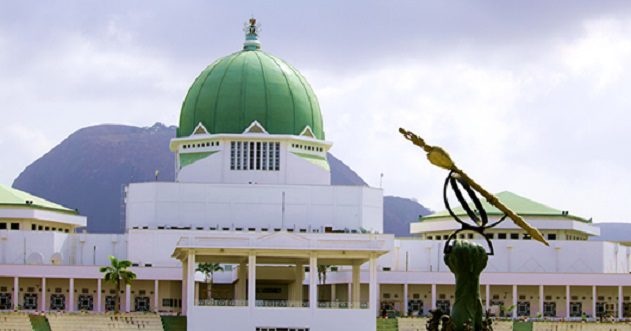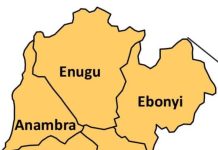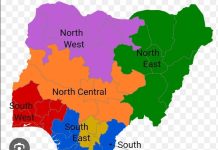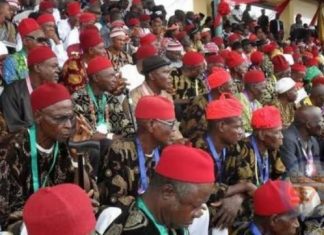Following heightened insecurity in the country, the members of the House of Representatives did what many ardent political watchers did not envisage.
They invited President Muhammadu Buhari to appear before them and provide details of what he was doing in the face of the rising destruction of lives and property, predominantly in northern Nigeria.
Read also: Group fingers NASS members, PDP behind fresh plots to undermine Nigeria’s democracy
Though the President declined the invitation without any official explanation, the ripples generated from the bold initiative of the National Assembly (NASS) members appear not to have settled.
As has been customary, NASS was a theatre of other intriguing stories in the past week.
_____________________________________________________________________
Executive bullying
On December 28, 2020, the House of Representatives distanced itself from reports that it apologised to President Buhari for inviting him to brief it on the worsening security situation in the country.
“The President or the presidency as the case may be, never sought for an apology from the House of Representatives for carrying out her constitutional responsibility to the Nigerian electorate,” the spokesman of the House, Hon. Benjamin Kalu, said in a statement.
He added, “For the avoidance of doubt, the House never apologised to anyone for exercising her constitutional mandate and the 9th Assembly of the House of Representatives under the leadership of Speaker Femi Gbajabiamila will not do anything to desecrate or destroy the critical institution of democracy – the legislature.”
Read also: Zabarmari Killings: Senate, Reps urged to face realities in insurgency war
Though reports of the apologies had been purely speculative, the quick denials by the Gbajabiamila-led House to Buhari’s indiscretion is symptomatic of a classic cover up.
It bears common sense that, given the long suspected umbilical relationship between the executive and legislature, the latter would paper over the issue and sweep it under the carpet.
From the ongoing conspiracy of silence, it should be clear to all and sundry that the House, as usual, has been bullied into submission, and the matter between them and Buhari now dead and buried.
The development, naturally, deepens the generally held view that the House and the larger NASS are not far from being a rubber stamp institution.
Perhaps, no other conduct illustrates this better than the reaction of Deputy President of the Senate, Ovie Omo-Agege, to the entire saga when he distanced himself and other Senators from actions of the lower house.
Read also: PMB: UK based Nigerian think tank expresses hope, lauds efforts towards national peace, stability
It is probably too late to expect members of NASS to not just bark but also bite.
NASS MEMORY LANE
Who said;
“I am happy that I went to prison. I went to prison and I am out. I am happy because going to prison has made me a refined, better and more forward looking man. I went to prison and discovered many secrets that I never believed that could happen?”
Answer: See end of post
Two other stories
Intensifying oversight functions
The Minority Caucus in the House of Representatives, in its New Year message, January 1, assured Nigerians of its resolve to intensify efforts on oversight functions of various development projects in 2021 fiscal year.
“As the representatives of the people, our Caucus has resolved to intensify our oversight activities and monitoring of 2021 budget performance to ensure that all projects and programmes that have direct bearing on the welfare of the people, particularly our youths and the economically vulnerable are promptly executed,” the Minority Leader, Hon. Ndudi Elumelu, assured in a statement.
This is unarguably a step in the right direction. In 2020, reports of how abandoned projects littered different parts of the country made the rounds in the media.
Read also: Group fingers NASS members, PDP behind fresh plots to undermine Nigeria’s democracy
On December 5, 2020, for instance, the Minister of Power, Sale Mamman, during a visit to three abandoned power projects, awarded since 2001, in Abia State, said that the Federal Government will review and re-award the projects.
This is only one example in the sea of abandoned projects nationwide. It is to be imagined the impact of the non-execution of these projects on the well-being of Nigerians and the economy.
It is hoped that the Elumelu-led caucus would match words with action, and regularly demand accountability and transparency from government functionaries.
____________________________________________________________________
Lawan’s persuasions
Senate President, Ahmad Lawan, in his New Year message released to journalists on December 31, in Abuja urged Nigerians to have faith in the fiscal policies and legislation being jointly put in place by the executive and the legislative arms of government, arguing that it would make the economic recession a thing of the past.
“We believe that allowing the implementation of this outstanding capital component of the 2020 budget to run concurrently with the 2021 budget will inject more funds to the economy,” he had said.
Lawan’s assurances may sound persuasive but it is doubtful how soon the promised reliefs would come given the several disconnects in the economy that require sustained policy initiatives and execution.
With Nigeria’s economy at the mercy of volatility in the global oil market, and severe disruptions in the supply chain arena, Nigerians can only keep hope alive, even as State governments begin to default in payments of the national minimum wage.
Answer: Senator Orji Uzor Kalu
Kalu made the statement, on December 13, 2020, during a Thanksgiving session at the Love World Incorporated, otherwise known as Christ Embassy. He is the Chief Whip in the Red Chambers of the National Assembly.
Join Television Nigerian Whatsapp Now
Join Television Nigerian Facebook Now
Join Television Nigerian Twitter Now
Join Television Nigerian YouTUbe Now









